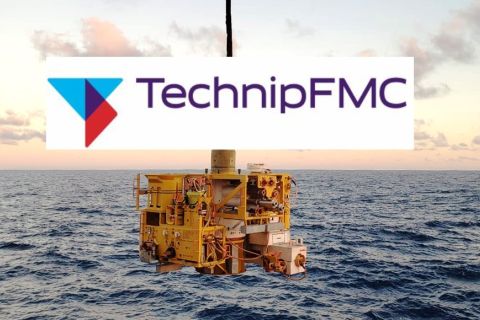Financial results for many exploration and production companies can only get better in the fourth quarter as their previously instituted, low-priced natural gas hedges expire-or as new and higher-priced hedges take effect. Many producers have been saddled with low-priced hedges between $2 and $3 per thousand cubic feet (Mcf) on a large portion of their gas production. That has prevented them from enjoying the full fruits of their output when prices soared past $4 on the New York Mercantile Exchange. Things are looking up at gas-rich Burlington Resources Inc., however. The Houston upstream independent's total oil and gas volume hedged has dropped from 40% in the just-ended third quarter to 26% in the fourth, and will drop further to 24% during the first half of 2001. There are no hedges yet in place for the second half of 2001. Consequently, Burlington, whose production is about 82% gas, has the greatest leverage to high gas prices among the largest independents, according to Robert Morris, who follows that oil and gas industry sector for Salomon Smith Barney in New York. During the third quarter just ended, some 40% of the company's gas production was hedged at an average price of only $1.84 per million Btu (MMBtu). Even though Burlington has been receiving less than optimum prices for its gas for the last nine months, Morris expects it still to have about $700 million in excess cash flow this year. The company can use that money to reduce debt, buy back stock and/or make niche acquisitions, he suggested. "A 10-cent per MMBtu change in our composite 2001 spot price forecast affects Burlington's projected cash flow next year by 2.5%, compared with a 1.9% average impact for our coverage group," Morris said. Pennaco Energy Inc. has taken advantage of strong gas fundamentals to fix a portion of its production over the next 18 months at attractive prices. For December 2000 through April 2001, the Denver independent has fixed 25 million cubic feet per day (MMcf/d) at $5.43 per Mcf, or $4.91 per Mcf at the Colorado Interstate Gas (CIG) pipeline to account for the Rocky Mountain basis differential. For April through next October, the company evidently expects gas prices to weaken, as it has locked in $4.70 per Mcf on 30 MMcf/d. These gas prices are higher than the company's second-quarter 2000 realized gas price of $2.85 per Mcf at CIG. Previously, Pennaco had purchased a put option creating a floor of $3.10 per MMBtu at the CIG pipeline for 7.5 billion cubic feet (Bcf) of gas from August through March 31, 2001. That represents about half of its forecast gas production during that period. Equitable Resources Inc. has traditionally used costless collars to lock in a price range for its gas production. But in its third-quarter conference call, management said that its hedging strategy is evolving. It now is designed to expose the Pittsburgh integrated natural gas company to two-thirds of any upward price move and protect against two-thirds of any price decline. Chieftain International Inc. has not hedged any of its oil or natural gas liquids production. For natural gas in the fourth quarter, however, it has arranged a fixed contact to sell 3.2 Bcf-39% of its U.S. gas production-for an average $4.41 per Mcf, net of transportation costs. Through the first nine months of 2000, the company's cash flow from operations rose 76% to $59.1 million, after preferred dividends. That performance was partly due to a 64% increase in gas prices over the same period in 1999. There is a wide range of strategies. Denver's Key Production Co. has no hedges, nor does it plan to institute any, according to chief financial officer Paul Korus. The company's lenders have not required hedging and the company has not chosen to hedge voluntarily. On the other hand, to fund a major acquisition of Michigan gas assets that more than doubled its reserves, Quicksilver Resources Inc. hedged a good deal of its production this year and next. "We are hedged because we are levered," explained its president, Glenn Darden. "You can hit us for one (high debt or hedging), but don't hit us for both," he told investors at the recent Dain Rauscher Wessels energy investment conference.
Recommended Reading
Baker Hughes Awarded Saudi Pipeline Technology Contract
2024-04-23 - Baker Hughes will supply centrifugal compressors for Saudi Arabia’s new pipeline system, which aims to increase gas distribution across the kingdom and reduce carbon emissions
From Restructuring to Reinvention, Weatherford Upbeat on Upcycle
2024-02-11 - Weatherford CEO Girish Saligram charts course for growth as the company looks to enter the third year of what appears to be a long upcycle.
TechnipFMC Eyes $30B in Subsea Orders by 2025
2024-02-23 - TechnipFMC is capitalizing on an industry shift in spending to offshore projects from land projects.
NOV's AI, Edge Offerings Find Traction—Despite Crowded Field
2024-02-02 - NOV’s CEO Clay Williams is bullish on the company’s digital future, highlighting value-driven adoption of tech by customers.
Patterson-UTI Braces for Activity ‘Pause’ After E&P Consolidations
2024-02-19 - Patterson-UTI saw net income rebound from 2022 and CEO Andy Hendricks says the company is well positioned following a wave of E&P consolidations that may slow activity.





